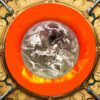A Resurgence of Stoic Virtue?
Stoicism is a philosophy that originated in ancient Greece and was founded by the philosopher Zeno of Citium in the early 3rd century BCE. The philosophy was named after the stoa, or porch, where Zeno taught his students.
The core beliefs of Stoicism include the idea that individuals should strive to live in accordance with nature and reason, and that the ultimate goal of life is to achieve inner peace and tranquility. According to Stoicism, individuals should strive to detach themselves from their emotions and focus on virtue and wisdom.
One of the most famous Stoics was the Roman emperor Marcus Aurelius, who wrote the book “Meditations” as a collection of personal writings on Stoic philosophy. The Stoic philosophy also had a significant influence on the development of cognitive-behavioral therapy.
The Stoics believed that the universe is rational and governed by a cosmic reason, which they called logos. They believed that individuals should strive to align themselves with the logos and live in accordance with nature. The Stoics also believed that individuals should strive to achieve inner peace and tranquility, known as ataraxia, by detaching themselves from their emotions and focusing on virtue and wisdom.
Another key belief of Stoicism is the idea of apatheia, or the ability to detach oneself from one’s emotions and desires. The Stoics believed that individuals should strive to be indifferent to pleasure and pain, and that true freedom comes from being able to control one’s emotions and desires.
The Stoics also believed that individuals have a social duty to use their virtue and wisdom to benefit others, and that the ultimate goal of life is to live in accordance with nature and reason.
The ultimate goal of a stoic is to live in harmony with nature and to accept whatever happens with equanimity.
Additionally, stoics believe in the concept of “virtue ethics,” in which the goal is to live a virtuous life rather than to pursue pleasure or wealth. They also advocate for self-control, self-discipline and self-improvement, and the cultivation of inner peace and wisdom.
The philosophy emphasizes the idea that individuals should strive to live in accordance with nature and reason, and that the ultimate goal of life is to achieve inner peace and tranquility. Stoicism has had a significant influence on the development of cognitive-behavioral therapy and continue to have a significant impact on modern philosophy.
Meditations and Marcus Aurelius
Marcus Aurelius was a Roman emperor and a Stoic philosopher. His book “Meditations” is a collection of personal writings on Stoic philosophy that he wrote as a private journal.
The “Meditations” is divided into 12 books, each of which contains a series of reflections and observations on various aspects of Stoic philosophy and life. The books cover a wide range of topics such as the nature of the universe, the importance of virtue, the role of reason and the importance of living in accordance with nature.
In the “Meditations“, Marcus Aurelius reflects on his own personal experiences and provides advice on how to live a virtuous life and achieve inner peace and tranquility. He encourages the reader to strive for self-discipline and self-control, and to detach oneself from one’s emotions and desires in order to achieve a state of apatheia or emotional detachment. He also stresses the importance of living in accordance with nature and reason, and of using one’s virtue and wisdom to benefit others.
The “Meditations” is widely considered to be one of the greatest works of philosophy and has been highly influential in the development of cognitive-behavioral therapy and modern philosophy. Many people today still find inspiration from its wisdom and guidance.
Today’s stoics are bringing the philosophy to the mainstream
Modern Stoicism is a movement that seeks to revive and apply the principles of Stoicism to the challenges of modern life. This contemporary revival of Stoicism has been led by a number of individuals and organizations, including Ryan Holiday, Tim Ferriss, and the Stoicism Today project.
Ryan Holiday is a bestselling author and media strategist who has written extensively on the subject of Stoicism and its applications in modern life. His book “The Obstacle is the Way”, which sold nearly 300,000 copies, has been widely praised for its ability to make Stoic philosophy accessible to a modern audience.
In it, he draws on the teachings of ancient Stoics such as Marcus Aurelius and Epictetus to show how the principles of Stoicism can be used to overcome obstacles and achieve success in any field. He also has written “Ego is the enemy” and “The Daily Stoic” that have been widely read and praised for their relevance to modern life.
Tim Ferriss, is another individual who has been instrumental in popularizing Stoicism in recent years. He has written extensively about the subject on his blog and podcasts, and has even created a course on Stoicism in partnership with the Stoicism Today project.
The Stoicism Today project is a group of academics and practitioners who are dedicated to promoting the study and practice of Stoicism in the modern world. They have created a number of resources, including an online course and a series of books, to help people learn about and apply the principles of Stoicism to their lives.
In recent years, there has also been a growing interest in Stoicism among business leaders, athletes, and other high-performing individuals who have found that the philosophy’s focus on self-control, resilience, and virtue can help them achieve success in their personal and professional lives.
In addition to these individuals, there are also many Stoicism Meetups and online communities, where people can come together to discuss and practice Stoicism.
A philosophy for the ages
Stoicism has likely seen such a powerful resurgence of interest in recent years for a few reasons. First, that its emphasis on rationality and self-control resonates with modern society’s focus on mental health and personal development.
Additionally, the principles of stoicism, such as accepting what one cannot change and focusing on personal growth, can be beneficial in coping with high stress and uncertainty. Stoicism has become so popular among business leaders, athletes and military personnel, for example, due to its practicality and its emphasis on personal responsibility and mental toughness. Ultimately, it is Stoicism’s focus on virtue and inner peace that appears to align with contemporary spiritual and philosophical movements.
Books on Stoicism:
“The Obstacle is the Way” by Ryan Holiday
“Ego is the enemy” by Ryan Holiday
“The Daily Stoic” by Ryan Holiday
Tim Ferriss‘s blog and podcast
The Stoicism Today project
“Meditations” by Marcus Aurelius
“A Guide to the Good Life: The Ancient Art of Stoic Joy” by William B. Irvine
“The Stoic Life: Emotions, Duties, and Fate” by Tad Brennan
“The Stoics: A Very Short Introduction” by Brad Inwood
“The Stoics” by F.H. Sandbach
Please help keep us publishing the content you love
Informinx may receive a small commission based on any purchases made by following links from this page
Comments
0 comments

























